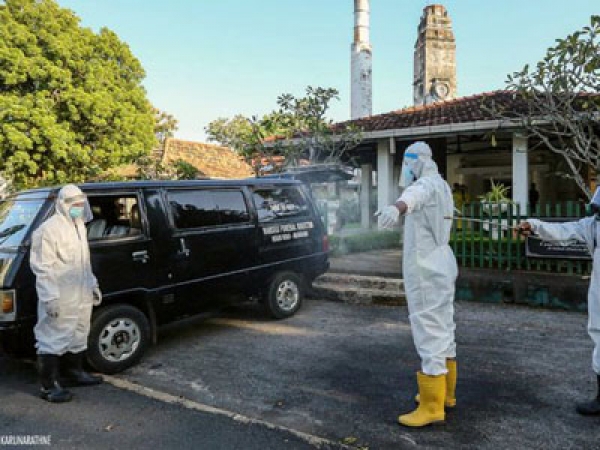UN human rights experts yesterday urged the Sri Lankan Government to end its policy of forced cremation of the COVID-19 deceased, saying it ran contrary to the beliefs of Muslims and other minorities in the country, and could foment existing prejudices, intolerance and violence.
“The imposition of cremation as the only option for handling the bodies confirmed or suspected of COVID-19 amounts to a human rights violation. There has been no established medical or scientific evidence in Sri Lanka or other countries that burial of dead bodies leads to increased risk of spreading communicable diseases such as COVID-19,” said the experts.
As of 21 January 2021, 274 COVID-19 related deaths have been reported in Sri Lanka, with a significant number of the deaths belonging to Muslim minorities. All of the bodies were cremated according to the fourth amendment of the Provisional Clinical Practice Guidelines on COVID-19 suspected and confirmed patients issued on 31 March 2020.
“The decision to make cremation mandatory followed alleged expert advice, including by the chief epidemiologist who claimed that burials could contaminate ground drinking water. However, the World Health Organization has reiterated there is no evidence to suggest that cremation prevents the spread of the disease, while the College of Community Physicians of Sri Lanka and the Sri Lanka Medical Association issued statements recently clarifying that there has been no proof that burial of COVID-19 dead bodies constitutes a public health hazard.”
“While we must be alert to the serious public health challenges posed by the pandemic, COVID-19 measures must respect and protect the dignity of the dead, their cultural and religious traditions or beliefs, and their families throughout,” the experts said.
“We deplore the implementation of such public health decisions based on discrimination, aggressive nationalism and ethnocentrism amounting to persecution of Muslims and other minorities in the country,” added the experts. “Such hostility against the minorities exacerbates existing prejudices, intercommunal tensions, and religious intolerance, sowing fear and distrust while inciting further hatred and violence.
“We are equally concerned that such a policy deters the poor and the most vulnerable from accessing public healthcare over fears of discrimination,” the experts said, adding this would further negatively impact the public health measures to contain the pandemic.
Information received by the experts indicates that cremation often takes place immediately upon the notification of the test results without granting family members reasonable time or the opportunity to cross check or receive the final test results. There have been several cases of cremations based on erroneous information about COVID-19 test results, the experts said.
The experts noted that the President and Prime Minister had instructed the health authorities to explore options for burials in Sri Lanka. “However, we are concerned to learn that the recommendation to include both cremation and burial options for the disposal of bodies of COVID-19 victims by a panel of experts appointed by the State Minister for Primary Health Services, Pandemics and COVID Prevention was reportedly disregarded by the Government,” they said.
“We hope that the report of local burial options by the main committee referred to by the Health Minister will be available soon and that the authorities will stop pursuing a burial solution in a foreign country.
“We strongly urge the Government of Sri Lanka to stop the forced cremation of COVID-19 bodies, to take all necessary measures to combat disinformation, hate speech and stigmatization of the Muslims and other minorities as a vector of the pandemic; and to provide remedy and ensure accountability for cremations that were carried out by error.”
The UN Experts are; Special Rapporteur on freedom of religion or belief Ahmed Shaheed, Special Rapporteur on minority issues Fernand de Varennes, Special Rapporteur on the rights of peaceful assembly and association Clément Nyaletsossi Voule and Special Rapporteur on the right of everyone to the enjoyment of the highest attainable standard of physical and mental health Ms. Tlaleng Mofokeng.










